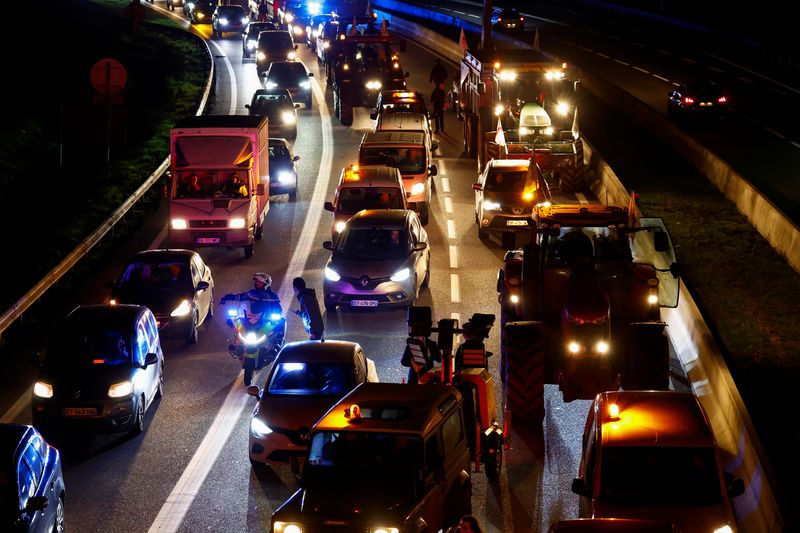PARIS (Reuters) - Farmers staged protests across France on Monday at the prospect of a trade deal between the European Union and South America's Mercosur bloc, which will further intensify competition for the French agriculture sector.
The EU and four Mercosur members - Argentina, Brazil, Paraguay and Uruguay - are pushing to conclude long-running trade negotiations by the end of the year.
Monday's protests were the biggest since French farmers held weeks of large-scale demonstrations last winter over cheaper imports, burdensome regulations and meagre incomes.
The protests were mostly peaceful on Monday but tractors briefly blocked part of a highway near Paris in the morning, while others dumped manure in front of government buildings.
"We have the same demands as in January, nothing has changed," Armelle Fraiture said on her dairy farm north of Paris. "We must make the government understand that enough is enough."
This year French farmers have had to contend with rain-hit harvests, livestock disease outbreaks and a parliamentary election that delayed measures promised to defuse the previous protests.
A Mercosur deal would represent a bitter "cherry on the cake", Arnaud Rousseau, head of France's main farmers' union, the FNSEA, told BFM TV.
Tens of thousands of farms in France, the EU's biggest agricultural producer, were in financial trouble, he said.
French farmers fear a Mercosur accord will bring more beef, chicken, sugar and maize from Brazil and Argentina, countries they say use pesticides on crops and growth antibiotics in livestock that are outlawed in Europe.
Protests are planned to run into December, FNSEA said.
"There's a lot of anger out there," the head of Young Farmers group Pierrick Horel told RMC radio. "Even if we don't approve the destruction of products, there comes a time when, unfortunately, it comes out, sometimes very strongly, very vehemently."
French President Emmanuel Macron on Sunday reiterated his opposition to a deal with Mercosur as proposed.

But with France lacking EU allies in the Mercosur talks, and rural grievances running deep, the authorities may struggle to placate the farmers.
Similar frustration was voiced by farmers across Europe last winter after a surge in imports from Ukraine following Russia's invasion in 2022.